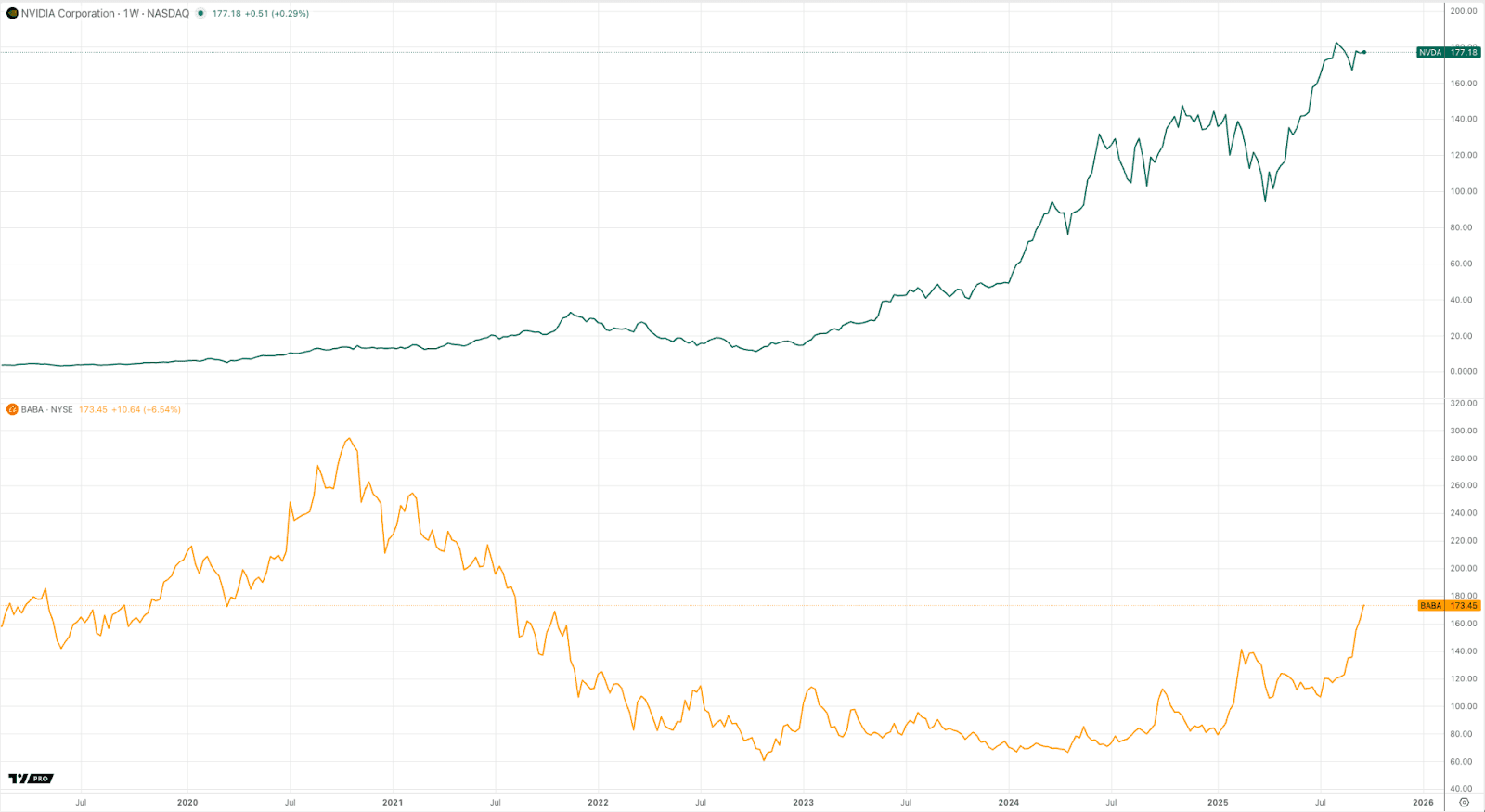business resources
China’s AI Ecosystem Gains Ground, Challenging Nvidia’s Global Dominance
10 Oct 2025, 8:04 am GMT+1
China’s AI Ecosystem Gains Ground, Challenging Nvidia’s Global Dominance Sanctions, Rivals, and Shifting Power: Nvidia Faces a New Reality in China’s $50B AI Market
Back in the spring, Jensen Huang, the founder and permanent head of Nvidia, admitted that the company's share in the Chinese AI accelerator market had decreased from 95% to 50% in a few years due to US sanctions. This was one of the biggest consequences of the US export restriction policy. Chinese customers, who previously bought almost exclusively Nvidia products, were forced to switch to alternatives.
According to other sources, Nvidia's share in China by the end of 2025 will be about 54%. The difference in numbers is probably related to the calculation method. Nvidia is only talking about pure accelerators, and analysts are talking about the broader AI infrastructure, including network solutions. But the fact remains that the Chinese market, estimated at $50 billion, has ceased to be Nvidia's monopoly.
The shift of Nvidia's market share to Chinese players is noticeably reflected not only in local competition, but also in global markets. Nvidia remains the largest company by capitalization in the world, and any correction of its share in China translates into fluctuations in market prices and the dynamics of indices and futures, for example, S&P 500 futures, where the company plays a leading role.
Against the background of Nvidia's weakening position, its overseas competitors from China have experienced significant growth. Huawei's share of the AI component market is expected to increase from 23% to 28% this year. And this is just part of a shift where the combined share of second-tier companies such as Cambricon Technologies could increase from 6% to 14%.
The Chinese authorities actively support the import substitution process, and the demand for local solutions is growing not only under pressure from sanctions, but also due to software optimizations. According to some reports, Alibaba can easily transfer inference tasks from Nvidia accelerators to Chinese chips. In the segment of training large language models, local companies are also moving forward, gradually closing the technological gap.
At first glance, its market share in China may be perceived as a risk for Nvidia, but the market is still reacting cautiously. Global demand for accelerators remains high, and massive data centers capable of absorbing tens of millions of chips are being built in the United States and Europe. Nevertheless, investors factor in the strengthening position of Huawei and other Chinese players, which reduces the space for continued technological rallies without corrections and occasionally sparks EURUSD price change as global capital shifts in response.
Huawei's recent announcement in the automotive sector was a significant step in the overall picture. In the Maextro S800 sedan, produced in conjunction with JAC, the company introduced a 43-speaker audio system with 4D sound, allowing passengers in the front and rear rows to listen to different music simultaneously without the need for headphones or physical barriers.
At first glance, this is just a spectacular marketing innovation, but in fact it is a demonstration of the breadth of Huawei's ambitions. From server solutions and AI accelerators to cars and consumer electronics. Chinese corporations are building a comprehensive technological ecosystem, and it is this ecosystem that becomes the foundation for long-term pressure on the positions of Western players.
The race for leadership in AI and related sectors is gradually shifting from a unipolar to a multipolar landscape. Previously, Nvidia seemed to be an unchallenged player in China, but now its position is being systematically undermined by both local giants such as Huawei and Alibaba, as well as second-tier companies.

For global markets, this means that Nvidia remains the central figure, but it has to play not only proactively but also defensively. Chinese companies, with government support, are creating a self-sufficient ecosystem, and this is changing the balance of power in the global technology race.
Share this
Peyman Khosravani
Industry Expert & Contributor
Peyman Khosravani is a global blockchain and digital transformation expert with a passion for marketing, futuristic ideas, analytics insights, startup businesses, and effective communications. He has extensive experience in blockchain and DeFi projects and is committed to using technology to bring justice and fairness to society and promote freedom. Peyman has worked with international organisations to improve digital transformation strategies and data-gathering strategies that help identify customer touchpoints and sources of data that tell the story of what is happening. With his expertise in blockchain, digital transformation, marketing, analytics insights, startup businesses, and effective communications, Peyman is dedicated to helping businesses succeed in the digital age. He believes that technology can be used as a tool for positive change in the world.
previous
How Can Smart Energy Management Systems Benefit Your Business?
next
The 5 Fastest WordPress Hosting Providers